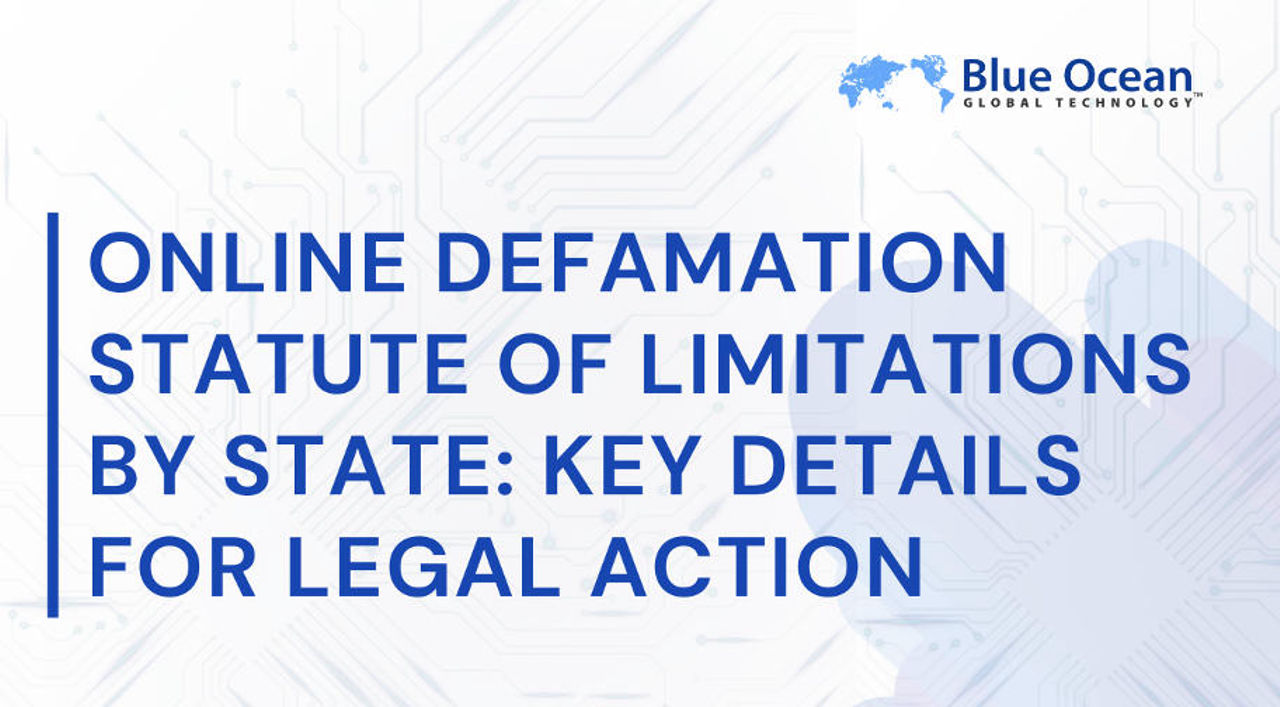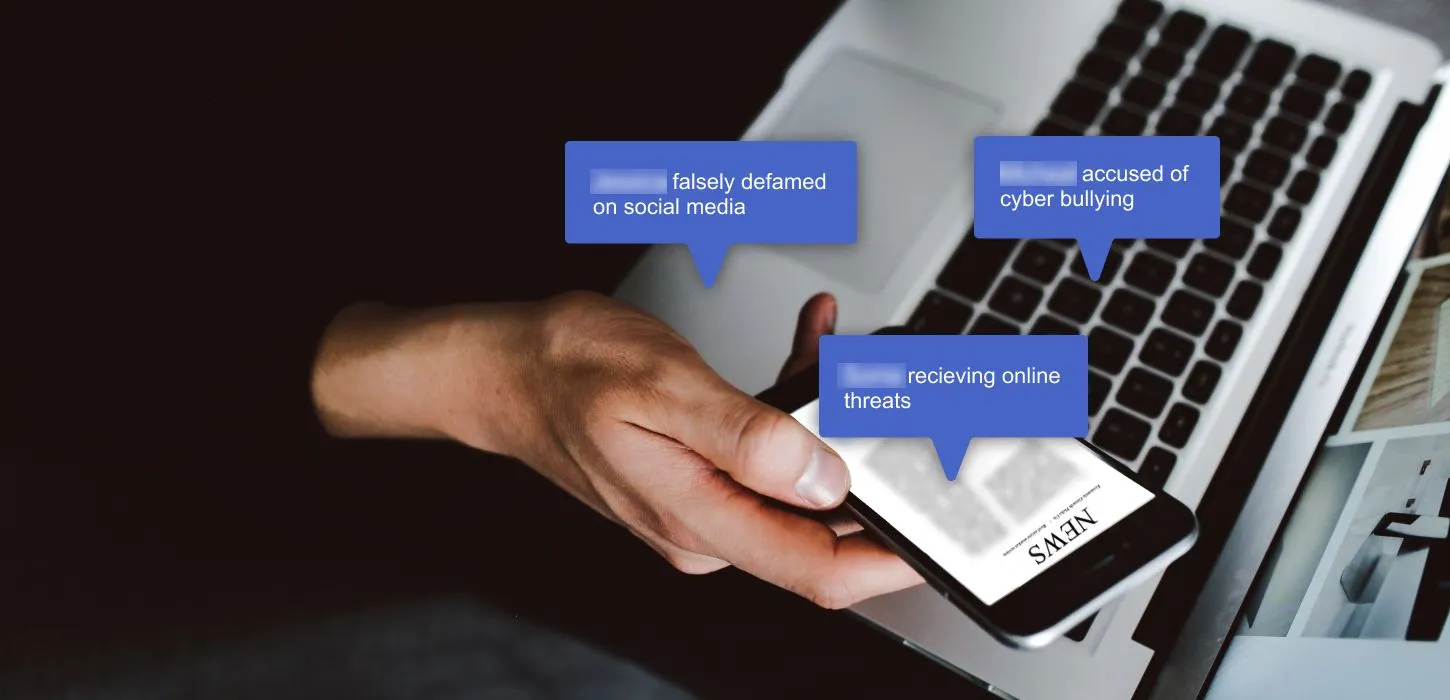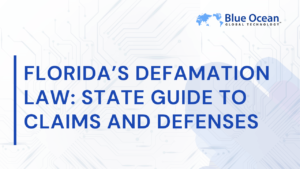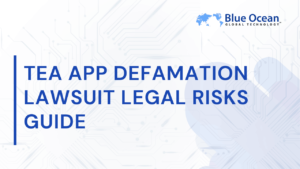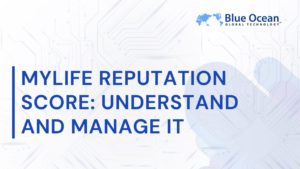Understanding the statute of limitations for defamation is crucial for individuals considering legal action, especially as these deadlines vary significantly by state and specific circumstances. Missing the filing deadline may jeopardize your ability to pursue justice, making it essential to understand how these laws apply in cases of slander, libel, or online defamation.
This guide outlines the core legal principles of defamation and statutes of limitation, explores state-by-state differences, and explains legal concepts such as tolling and the discovery rule. At Blue Ocean Global Technology, we specialize in navigating online defamation cases, offering guidance and solutions tailored to your unique circumstances.
What Is Defamation and the Statute of Limitations?
Defamation refers to a false statement made publicly that damages the reputation of another person. Understanding the intricacies of defamation and the statutes of limitations is the first step to ensuring you take timely legal action when necessary.
What is Defamation?
Under U.S. law, defamation encompasses false statements presented as fact that harm an individual’s private, professional, or public standing. To prove a defamation claim, the following elements are typically required:
- False Statement: The statement must be untrue and presented as a fact, not an opinion.
- Publication: It must be communicated to a third party, such as via social media or print media.
- Harm: The statement must cause measurable damage to the individual’s reputation.
- Fault: The offending party must demonstrate negligence or malice in conveying the falsehood.
Defamation is classified into two subcategories: slander (spoken defamation) and libel (written or published defamation). Slander often requires proof of actual harm due to its temporary nature, while libel is generally considered more damaging as it has a wider and enduring reach.

What Is a Statute of Limitations?
A statute of limitations is the legally mandated time frame within which a defamation lawsuit must be filed. These limitations exist for several reasons:
- Preserving Evidence: It ensures that witness testimonies and evidence remain accessible and credible.
- Legal Certainty: It provides fairness to defendants by limiting indefinite liability for past actions.
While defamation lawsuits share some similarities with other civil claims, statutes of limitations may vary due to unique factors, like the distinction between slander and libel or the challenge of identifying perpetrators in online defamation cases.
Why is the Statute of Limitations Critical for Defamation Cases?
Timely action is imperative in defamation cases due to the often strict windows for filing a claim. Delays may create obstacles, such as:
- Loss of Evidence: Key documents or other critical evidence might no longer be accessible.
- Legal Restrictions: Courts may dismiss a case outright if the deadline has passed.
Understanding your specific timeline—and acting quickly—ensures that your rights are preserved.
In some situations, victims may also be entitled to emotional distress damages if the defamation has caused severe psychological impact in addition to reputational harm.
Statute of Limitations for Defamation by State
Legal timelines for filing defamation cases vary from state to state and can depend on the nature of the harm, the type of defamation, and whether the case crosses jurisdictional lines.
State-by-State Defamation Statutes Chart
Each state outlines specific filing deadlines for defamation cases, making it vital to determine where the harm occurred. For instance, most states enforce a statute of one to three years, but individual exceptions may apply based on circumstances or recent updates in state law. Statutes of limitation also differ between slander and libel:
- Slander: This typically entails shorter filing deadlines because of its transient nature. Some states allow filing within a year or less.
- Libel: Written defamation often provides a more extended period due to its lasting impact.
You should consider consulting legal professionals to navigate the nuances of these laws in your state.
How Long Do You Have to File a Defamation Lawsuit by State?
The filing timeline can fluctuate based on unique state laws for defamation and the nature of the claim. Additionally, circumstances such as delayed discovery of harm may modify the effective time frame for filing. For example, New York typically allows a one-year statute of limitations for defamation. However, cases addressing long-term harm or involving private disputes may require additional examination.
In cases involving federal entities, court rulings or overlapping state and federal jurisdiction can influence the filing period.
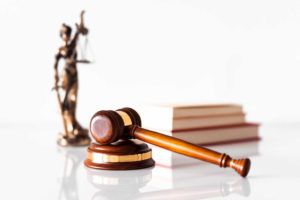
Understanding State and Online Jurisdictions
When defamation occurs across state or national boundaries—such as via social media—jurisdictional questions arise. Federal laws may apply where state statutes are inconsistent, especially in cases involving online platforms with audiences in multiple regions.
Calculating and Modifying the Filing Deadline
Statutes of limitations are not always rigid; certain legal concepts may extend or reset these timelines, allowing claimants additional opportunities for justice.
How is the Statute of Limitations Calculated?
The timeline for filing a defamation claim begins once the defamatory statement is published or communicated to a third party. However, discovery rule exceptions apply in some cases, such as when harm is unknown for an extended period:
- Publication Date: The clock generally starts when the false statement is first made public.
- Discovery Rule: If the victim cannot reasonably discover the harmful statement immediately, the statute may reset when the harm is uncovered.
- Ongoing Defamation: Continued publication or circulation may extend deadlines under specific conditions.
What Actions Can Toll the Statute of Limitations?
Certain events may toll, or temporarily pause, the statute of limitations. These include:
- Statements deliberately concealed or withheld from public view.
- Fraudulent actions that prevent the discovery of the defamation.
- Circumstances of legal incapacity, such as claims involving minors.
According to a 2024 Columbia Law Journal study, deliberate obfuscation of defamatory actions frequently warrants extensions in filing periods.
How Does the Internet Influence the Filing Deadline?
Defamation online can complicate the statute of limitations, as continuous sharing and reposting may effectively restart the timeline. Platforms like Facebook or LinkedIn, with extensive global reach, add further complexity due to jurisdictional overlaps.
Exceptions and Extensions to State Statutes
While statutes of limitations for defamation are stringent, exceptions can provide relief in qualified scenarios.
Are There Exceptions to the Statute of Limitations?
Common exceptions include tolling for concealed defamation or instances where the victim was under a legal disability when the harm occurred. International factors, such as jurisdiction conflicts, can also extend filing deadlines.
Filing a Defamation Claim After the Deadline
In rare cases, doctrines like the discovery rule may allow a lawsuit after the limitations period ends. However, pursuing such claims entails significant risks, including challenges to evidence validity and limited recourse if dismissed.
How Are Slander and Libel Treated Differently?
Statutes of limitations for slander are often shorter than those for libel because the harm tends to be less enduring. For example, states like California enforce a one-year limit for both categories but provide nuanced guidance based on case-specific details.
Legal Steps After the Expiration of the Statute
If the filing deadline has passed, legal options shrink, though some exceptions persist.
What Happens if the Statute of Limitations Expires?
When the statute expires, the claim is typically no longer enforceable, barring extenuating circumstances like ongoing injury.
Can You Sue for Online Defamation After Time Runs Out?
Continuing harm from online content, such as reposted statements, might justify reconsideration of jurisdictional filing laws, especially for cross-border cases.

Bullet-Based Overview: Consulting Legal Experts
Seeking legal expertise is critical to navigating expired cases:
- Attorneys can assess whether specific exceptions apply.
- They can gather digital forensic evidence to bolster past claims.
- Professional guidance ensures alignment of case preparation with complex legal standards.
FAQs: Internet Defamation Expert Methodology
1. Can filing deadlines for defamation be reset based on location?
Yes. In some cases, deadlines can be reset based on location, but this requires strong legal justification and a clear connection to the jurisdiction.
2. How do modern online platforms affect defamation timelines?
Online platforms can complicate timelines due to continuous sharing and reposting. Jurisdictional complexity and evolving U.S. digital laws also influence deadlines.
3. Why are expert resources important for cross-border defamation cases?
International defamation cases involve multiple jurisdictions and laws. Expert legal and forensic support helps accurately evaluate timelines and potential damages.
4. What role do digital forensic services play in defamation cases?
Digital forensic services preserve critical online evidence, which can be vital in proving defamation and meeting statute of limitations requirements.
5. What technology tools help in preparing a defamation case?
Tools such as online monitoring platforms and data scrapers detect defamatory content globally and gather evidence across multiple platforms.
6. Why is professional guidance essential in defamation cases?
Because filing deadlines vary by state and case type, expert legal guidance ensures deadlines are met and exceptions are properly applied.
Contact us today to speak with a defamation expert witness.
Explore our expert witness services for online defamation and reputation repair.


